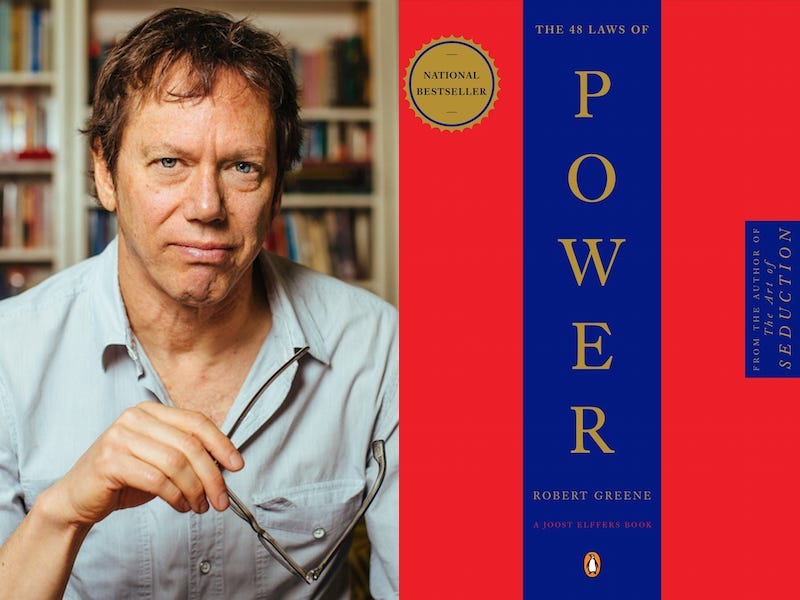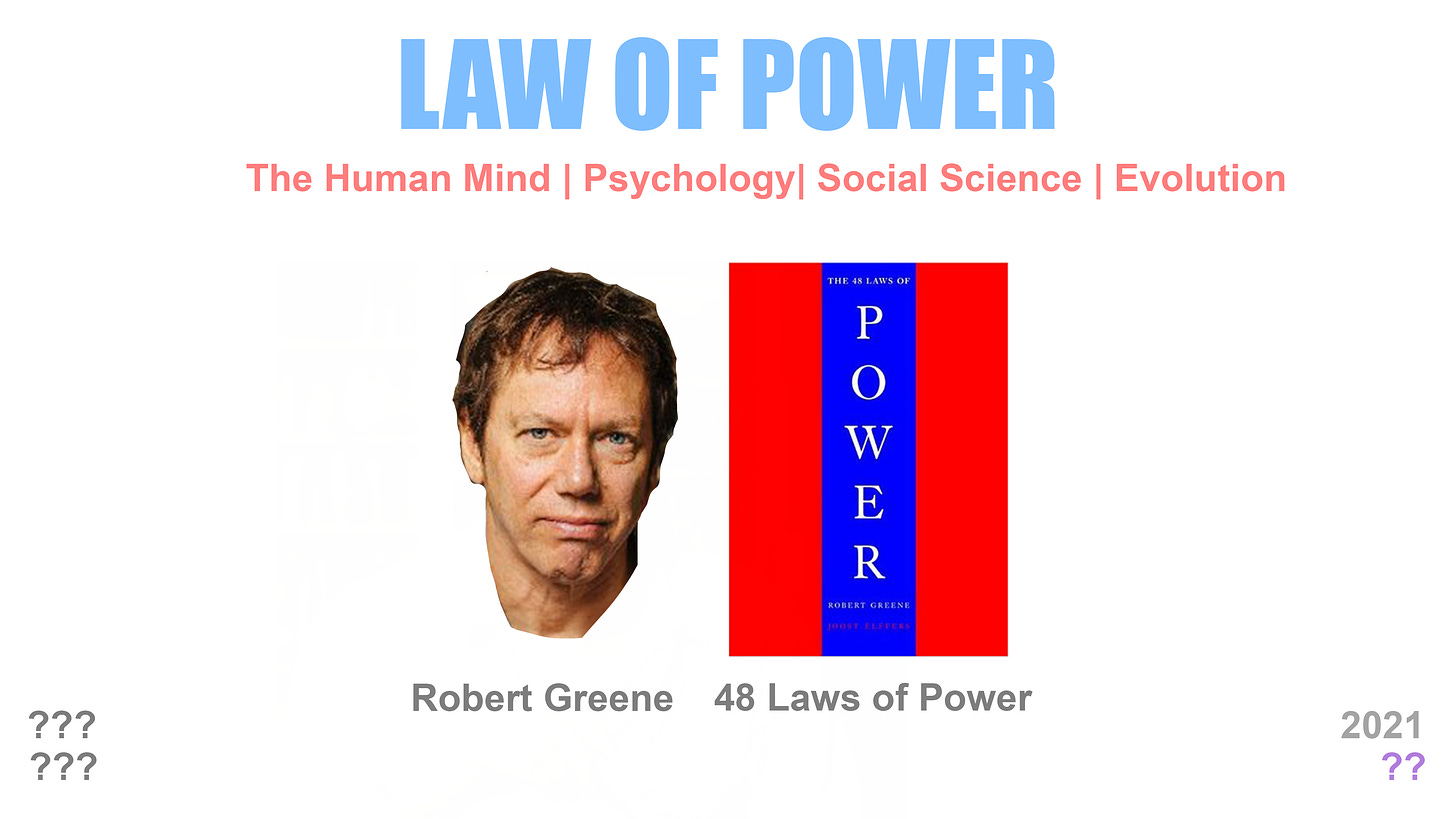In this video, we listen to Robert Greene, the author of '48 Laws of Power,' a 1998 cult classic...
I first heard about '48 Laws of Power' in the early 2000s while working in Silicon Valley for many San Francisco startups and large corporations.
At first, as a young engineer, I dismissed it, thinking it sounded like a cynical view of the world...
However, over time, I came around to the idea that people are very petty, power-hungry, and ultimately will float in and out of your life on a breeze as it is politically or functionally convenient to do so.
So many people were either trying to start or join the next big startup, so people changed jobs often, every 1-2 years as their stocks vested, or they no longer thought this startup was going anywhere, so they'd jump on the next wannabe Google or Facebook, looking for what they called Unicorns...
As I too participated in the hunt for Unicorns, it definitely seemed like there was a rhyme and a reason for most people's behavior... I became extremely fascinated with psychology and economics as they affect corporations and individuals.
So, many co-workers would mention the book '48 Laws of Power' every so often. While I'm not convinced the '48 Laws of Power' are hard and fast laws...
There is a nugget of truth to the idea that there is something guiding people's behavior that looks or behaves like a law. This law, I concluded, was people's "emotions." Emotion, in contrast to logic or reason, was the common denominator because not everyone was logical or of sound reason or sound mind, but everyone, even the homeless people who slept on my front doorstep, were extremely emotional.
In this video, Robert Greene gives a lecture or a tech talk to Google employees...
'48 Laws of Power' reminds me of cult thinking and, in fact, was a cult classic among startup engineers and technocrats of the 2000s, which reminded me of many religions, including Mormonism, and more specifically, Scientology... as '48 Laws of Power' reminded me of L. Ron Hubbard's 'Dianetics,' which was the book L. Ron Hubbard wrote, and because of 'Dianetics' financial success, inspired L. Ron Hubbard to go on to create a religion of his own, Scientology.
Anyways, Robert Greene goes on to say we are subject to the evolution of the brain's biology, which creates both the ancient brain or the brainstem, which regulates our breathing, heart rate, and hormones, which in turn create our emotions. While our frontal cortex is relatively new and unique to mammals, humans, great apes, monkeys, etc., have the largest frontal cortex or frontal lobe, humans with the most neurons of all. This is what gives us our language and ability to reason or think instead of simply just react. But even humans primarily act on emotions, but with time, most people learn to control their emotions with logic and reason to varying degrees.
Because of this, even though people have language, logic, and reason, we are still governed by emotions: joy, happiness, sadness, envy, greed, lust, gluttony, anger, boredom, etc. I would add that in many religions, each emotion can be characterized by some kind of sin we must learn to overcome, avoid, or limit or control.
In psychology, we learn how to manipulate others by understanding how to manipulate other people's emotions or by appealing to their appetites or bribing them with creature comforts...
In technology and entertainment, we've developed techniques to use people's senses to optimize their behavior through conditioning and rewarding them with dopamine traps when they complete simple tasks, like clicking a button, watching a video, or buying something, which is similar to a sugar high without the sugar.
In economics, money stimulates the same part of the brain cocaine does, so gambling or day trading can easily create adrenaline addicts who could lose control of their faculties as they rush to trade or gamble on everything.
So what seemed like a job in Silicon Valley, Wall Street, Washington DC, or Hollywood quickly turns into something else, a game for prestige, money, and power.
But because people do not live alone, these microcosms form larger organizations like cults, clubs, religions, corporations, industry, and governments, countries, and ethnicities, each with their own unique culture filled with art, music, literature, ethics, morals, and values. These eventually create something even larger: generations of people who encompass all cultures.
Robert Greene describes these generational cultures as a Zeitgeist, with each generation composed of people born within about 22 years or so. And there are about 5 generations living at the same time; each generation/zeitgeist forms a cycle of revolution, enlightenment, stagnation, depression, which results in another revolution, starting the cycle all over again.
Greene concludes by saying that as of 2018, the Millennial Generation or perhaps Gen Z may be the generation to start the next revolution, if we haven't already. And if you want to be successful going forward, you should figure out how to ride that wave of revolution.
In sum,
Maybe Greene is right.
Just say’n ~/j







48 Laws of Power | Robert Greene | The Cult